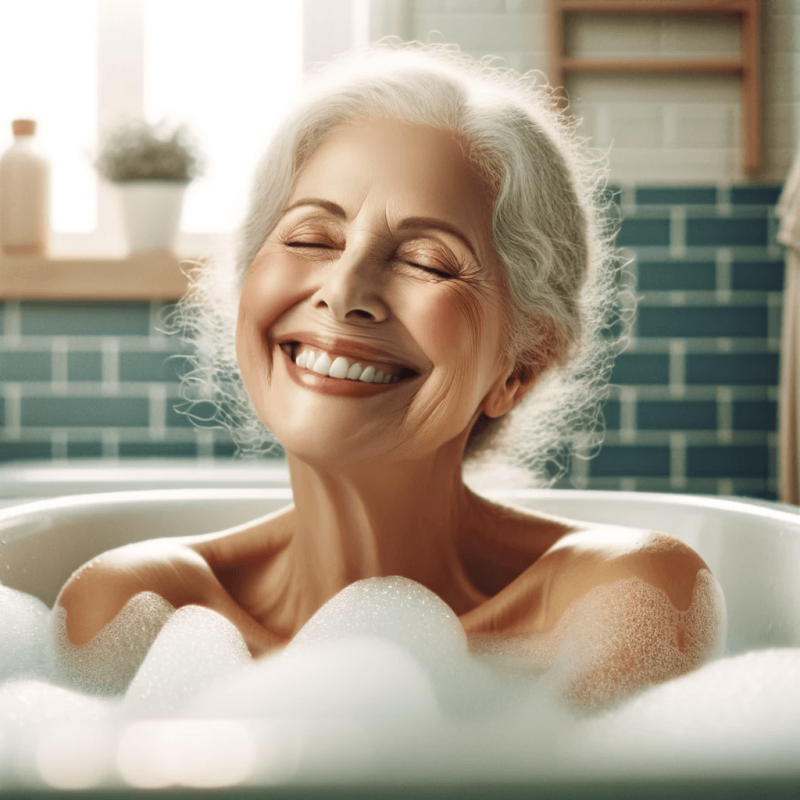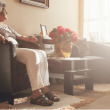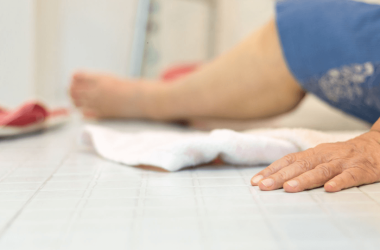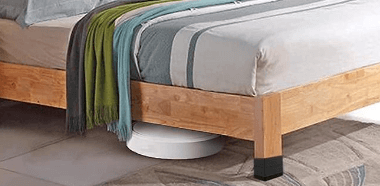If you are the primary caregiver, it will fall upon you to do this, helping them as much or as little as possible, while allowing them some degree of privacy and independence. It is important that first, you have a conversation with the senior who seems to have difficulty bathing and then offer help.
Why is bathing seniors important?
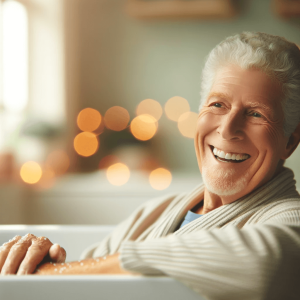
As people grow older, they may become fearful of being alone in the bathroom, may be afraid of falling, and may avoid bathing. Since being clean is part of health and hygiene, elders must take baths regularly.
Whether there are physical or psychological problems, it is best to address them. When the person is clean all over, there is a reduced risk of skin and other infections. The senior will also feel fresh and smell good.
How do you help with senior bathing?
If you are the caregiver, then you may be aware of the many bath aids that are now easily available to facilitate senior bathing. What you need depends on the kind of bath you have and the ability of the senior to use the facilities. If the bathroom only has a tub with a shower inside, you get a host of bath aids such as:
- Bathtub rail
- Bath Transfer bench
- Floor-to-ceiling grab bar
- Suspended bath seat
- Bath board
- Bath lift chair
- Bath transfer hoist
- Bath steps
- Wall-mounted shower seats
If there is a separate walk-in shower area, you can get mobile bathing chairs, some of which can be wheeled into the shower room. Or you can have a foldable seat if the senior only needs to sit while showering.
You can also get hand-held showers that are easy to attach and use and can be directed at different parts of the body. Using assistive bathing aids for seniors depends on many factors, including the layout of the bathroom.
The bathing process
While all these bath aids can help a great deal, sometimes you may have to be in the bathroom with the senior for increased safety, especially if the senior has health issues that prevent them from doing so on their own.
- To ensure some degree of privacy, allow your elderly parent to use some form of covering of their intimate parts in the bathroom so that they don’t feel embarrassed.
- Check the water temperature when you put it on. If you have a temperature thermostat in your shower, that is all the better. You don’t want your parent to be too cold or too hot in the bath.
- Hand them a washcloth or loofah with soap, bath, or shower gel and allow them to use it on themselves (or do it for them, if they cannot) and then help rinse it off.
- Have a long-handled brush or loofah to reach parts that they may find difficult to reach with their hands.
- Use shampoo to clean the hair at regular intervals. If the senior does not need shampoo, then consider using a shower cap to keep the hair dry.
- Have a dry towel ready (or a toweling robe) and take your senior out of the bathroom.
- Keep all the wearable clothes ready. Use lotion or deodorant if and as necessary before helping them into their clothes.
Establishing a bathing routine is important. The initial discomfort will probably give way to acceptance over some time, both for you and the senior.
Bathing helps the senior become more confident and able to interact in a social environment.
What happens if bathing is not possible every day?
If, for any given reason, the senior cannot take a full bath every day, then a sponge routine is a desirable option.
- You will need two basins of warm water, one for soaping and the other for rinsing. You can use bathing sponges or washcloths.
- Dampen the sponge or cloth and use some soap on it. Wipe parts of the body gently. Do one part at a time, using a soapy cloth and the rinsing cloth afterward. Keep rinsing and wringing the cloth in the water in the basin (soapy in the soapy one and rinsing in the plain water one).
- Once you get used to it, it does not take too much time and your senior will feel refreshed after this routine.
- Dry off with a towel and help the senior with fresh clothes.
In case it is difficult for you and them to do this daily, consider helping them to use wet wipes, available in a bigger size, to keep them relatively clean. You can get a variety of options in bathing wipes for seniors, including those with lotions some of which are flushable. While these are not the best option daily, they can serve to help out in between sponges or baths.
To sum up:
Bathing regularly helps them establish control over their bodies and staying clean keeps them away from a host of infections. Help them with bath aids or with your physical presence so that they stay active and healthy as long as possible in the comfort of their own homes.
When your senior has fresh clothes on and is clean, he may be open to other activities, even if otherwise they are relatively inactive. He may also take a greater interest in eating and nutrition is important in seniors, particularly if they are on different medications.
Bathing problems may be a precursor to other long-term health issues, so it is important to ensure that the senior is taken care of in the home environment as long as possible.

Smiti is a web content writer, journalist, book author, and dietitian whose work has appeared in Tribune India, Apollo Life, Indian Express, Women’s Era, and other print and digital publications. She transitioned from writing for the print media to web content writing and has ghost-written various kinds of content in a variety of niches.




